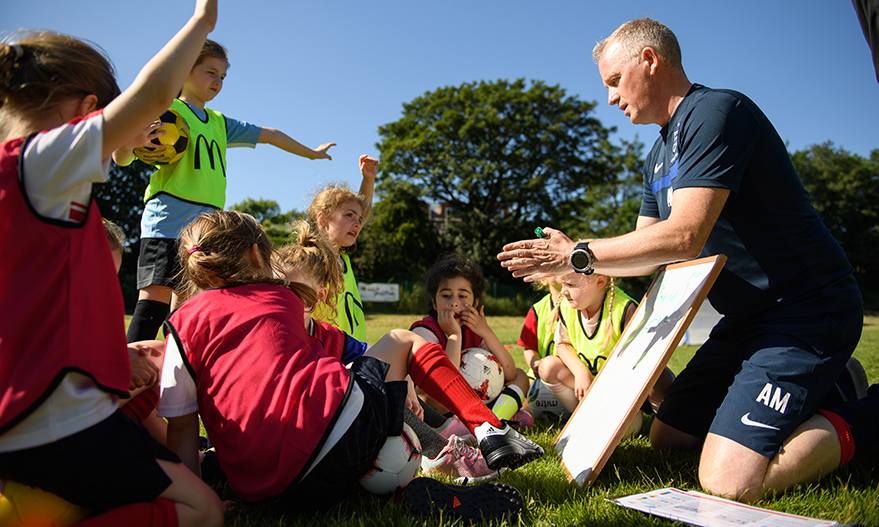
Using the FA Learning Cycle in the Foundation Phase
- The Boot Room
- 29 July 2020
The FA Learning Cycle demonstrates that although there are distinct phases to learning, the whole process is ongoing and one phase of development is merely the stepping stone to the next.
For effective learning to take place, it’s always a good idea to show where this fits into a real context.
You may have the best passing session ever, but if your players can’t see where this fits into the game, then it’s not going to help as much as doing something that’s more realistic and game-like.
When you’re introducing your topic or activity, try using phrases like: “this is how it fits into the match” or “I think you’ve got this first bit now, so we’re going to move onto the next part”.
Adopting this approach helps your players to see the relevance and the connection between each part of the learning process.
Activate
A great way to start your session is by setting your players a challenge. The best learning takes place when a player is faced with a high challenge with low stress. This is where knowing your player becomes really important.
The trick is to stretch each player’s learning beyond what they can already do into what’s known as the ‘zone of proximal development’. If you want to read more about this then refer to Vygotsky and his work in this area.
The zone is the difference between what the player is capable of doing on their own and what they’re capable of achieving with the support and guidance of someone else. This highlights the important role you must adopt in building and supporting learning, rather than dominating the process and giving them all the answers.
Demonstrate
For real learning to take place, your players have to do something. This could be an activity, a game or even a discussion or problem-solving task. The idea is to get them involved.
Your players are now ready to show that they’re having a go at embedding what they’ve learnt.

Provide lots of game-like activities to consolidate the learning
Consolidate
Your role is to observe and check for understanding as your players try to demonstrate the key learning points. If they’re having some success, you must provide lots of practice opportunities so they can process everything they’ve learnt.
For example, if the learning activity is about how two players can beat one, then once they have practised this, they need to consolidate. True learning and consolidation will have been achieved when they use their knowledge from this activity in other games and formats.
It’s important to remember to provide a variety of opportunities to practise if you want the new learning to become an integral part of their game.
Once you see that your players are having success, then you’re ready to re-activate with the next part of learning you have in store for them. This is where the whole process begins again.
This cycle provides a useful context for coaches who are developing their practice and beginning to apply an understanding of how learning happens best in their coaching sessions.
To learn more about Foundation Phase DNA, click here.


